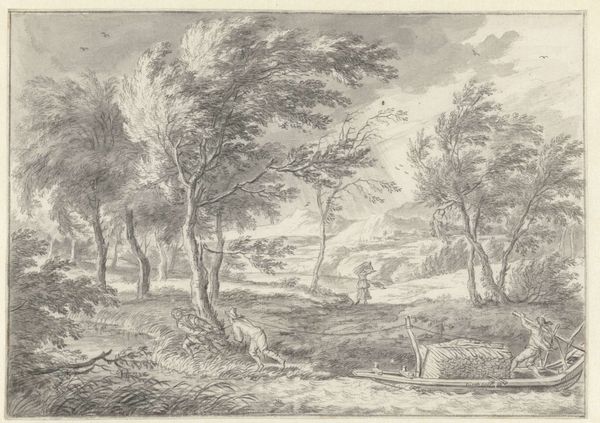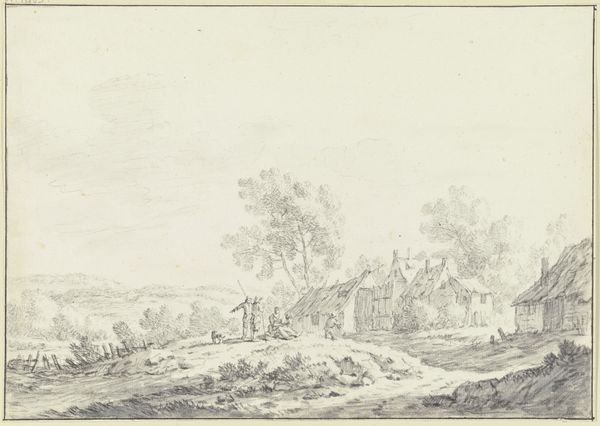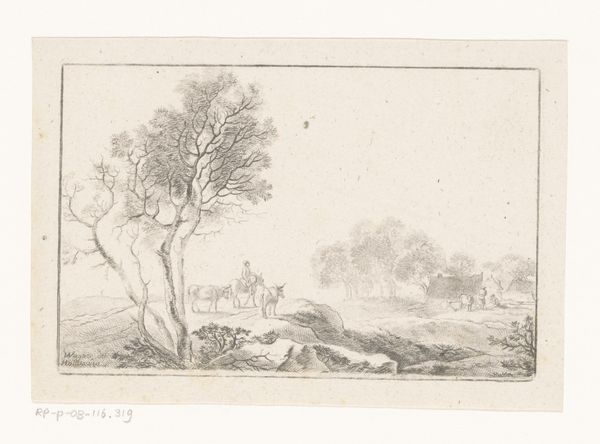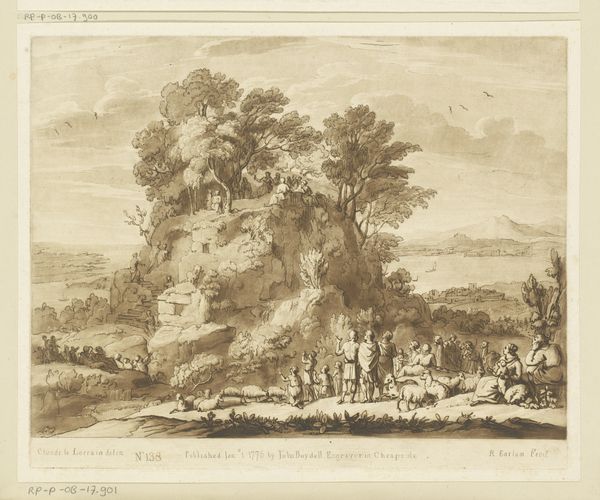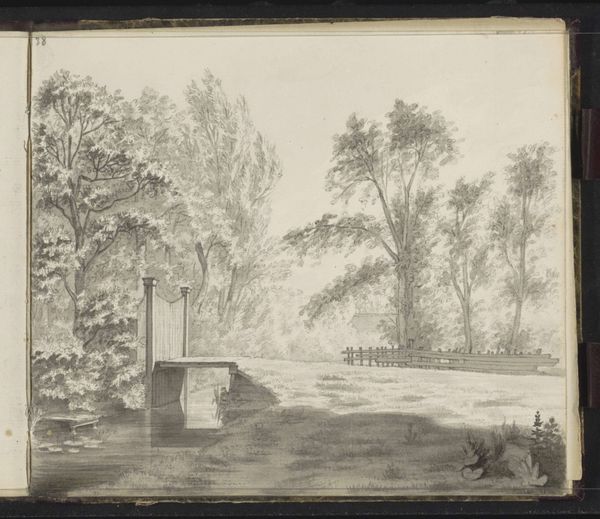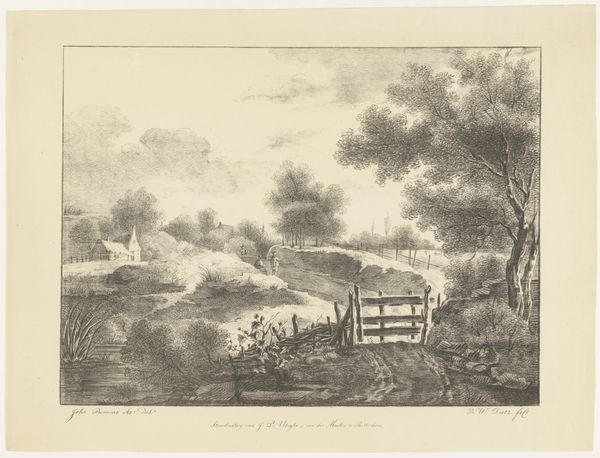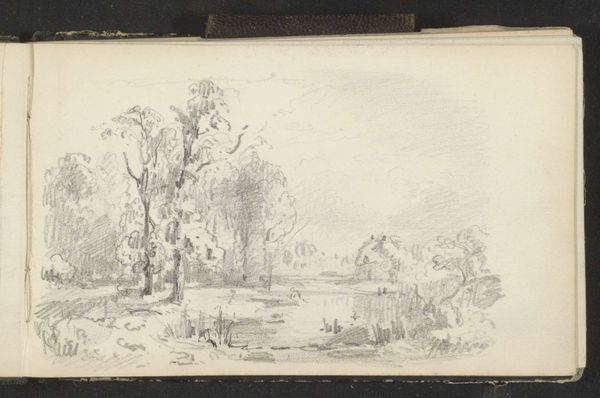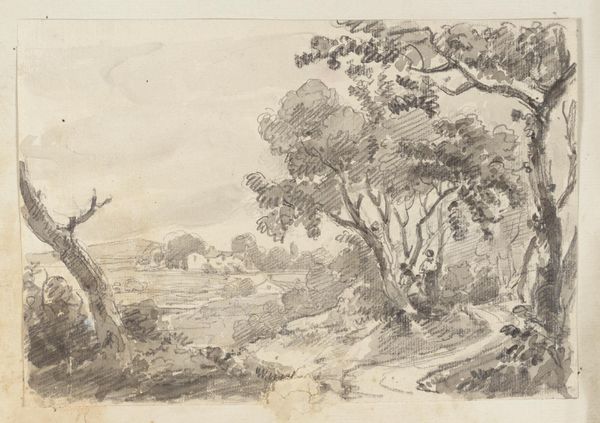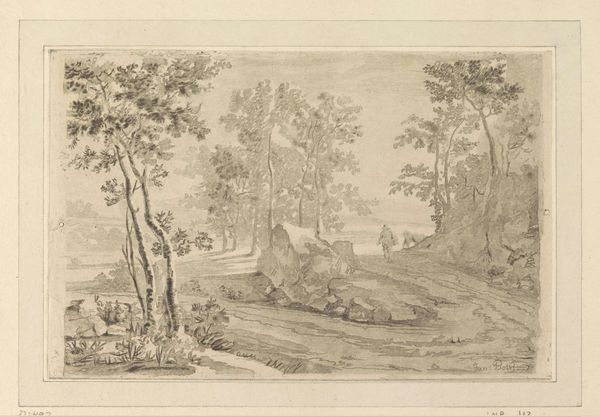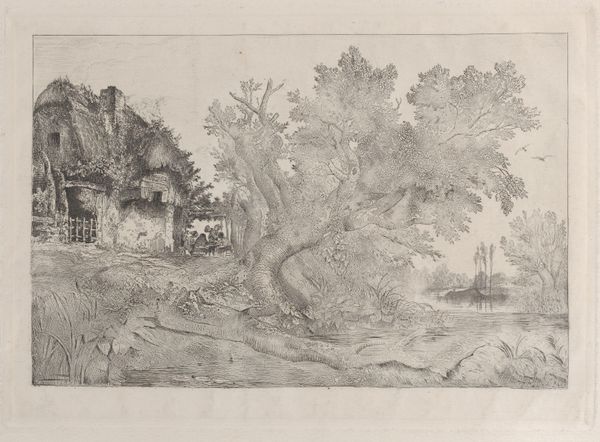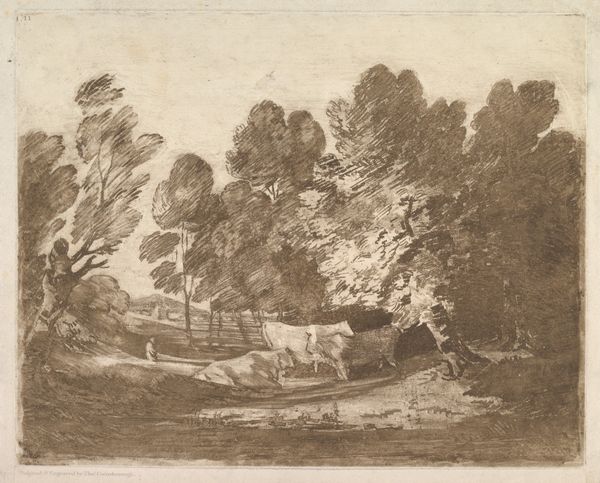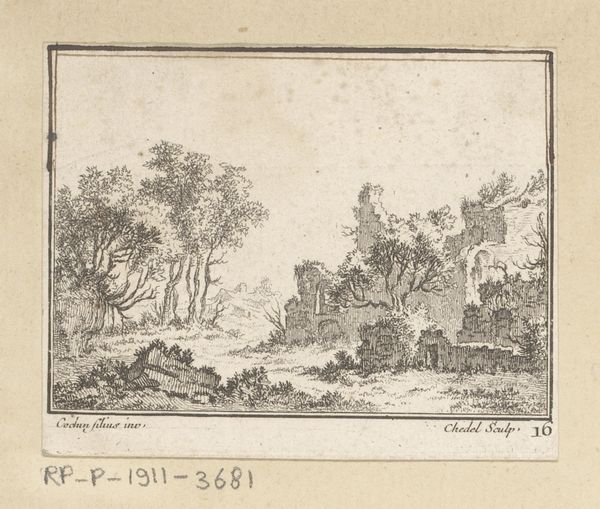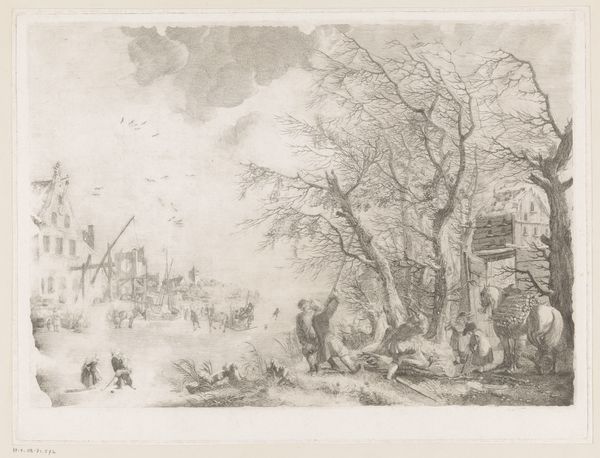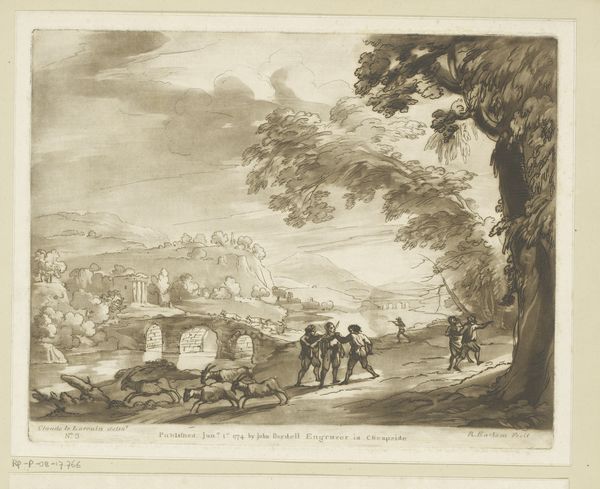
Dimensions: height 294 mm, width 374 mm
Copyright: Rijks Museum: Open Domain
Dionys van Nijmegen made this drawing of a landscape with ruins using pen in grey ink and grey wash, a technique known for its subtle gradations and atmospheric effects. The choice of materials and methods here is significant. Grey wash drawings like this one were very popular in the 18th century as a means of rapidly capturing a scene. The technique lends itself to suggestion, and the evocation of a mood, more than exact detail. It's also worth noting that the paper itself is a manufactured product, underlining how even seemingly direct sketches are mediated by industrial processes. The layering of the grey ink and wash creates a sense of depth and volume, emphasizing the ruined structures and the surrounding foliage. Nijmegen’s skillful rendering of the landscape invites us to consider not just the aesthetics of decay, but also the economic and social systems that allowed him to create these effects so readily. This was a moment when art was becoming much more available, and was increasingly integrated into everyday life.
Comments
No comments
Be the first to comment and join the conversation on the ultimate creative platform.
